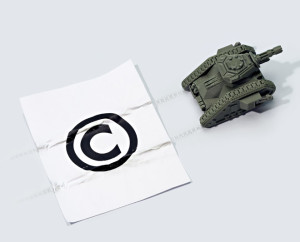 Copyright Clearance Center, Inc. (CCC), a firm dedicated to creating global licensing and content solutions that make copyright work, has acquired London-based Ixxus, a software professional services firm and leading provider of publishing solutions that reinvent the way organizations work with content. With offices in the UK, US, Spain and Romania, Ixxus is now a wholly-owned subsidiary of CCC. Terms of the deal were not disclosed.
Copyright Clearance Center, Inc. (CCC), a firm dedicated to creating global licensing and content solutions that make copyright work, has acquired London-based Ixxus, a software professional services firm and leading provider of publishing solutions that reinvent the way organizations work with content. With offices in the UK, US, Spain and Romania, Ixxus is now a wholly-owned subsidiary of CCC. Terms of the deal were not disclosed.
According to The Radicati Group, the Enterprise Content Management (ECM) market will grow from $5.5 billion in 2014 to more than $9.4 billion in 2018. This is an average annual growth of 15% over that timeframe. The Ixxus proposition goes beyond the traditional ECM offering, combining content modeling, semantic linking and advanced workflow capabilities to support the publishing process from end to end and deliver truly ‘smart content.’
Source: Copyright Clearance Center Acquires Ixxus | Digital Book World

 Jack Browning recently posted a great analysis regarding whether a new technology like the blockchain could revitalize the first sale doctrine under copyright law. Jack used a terrific analogy to explain the first sale doctrine, from the Hugh Jackman movie The Prestige. In the film, in order to create the illusion of teleportation, Jackman’s character – who had access to a cloning device only (just watch the movie, okay?) — had to murder his own duplicate each time one was created, so that there was only one copy in the world at any given time.
Jack Browning recently posted a great analysis regarding whether a new technology like the blockchain could revitalize the first sale doctrine under copyright law. Jack used a terrific analogy to explain the first sale doctrine, from the Hugh Jackman movie The Prestige. In the film, in order to create the illusion of teleportation, Jackman’s character – who had access to a cloning device only (just watch the movie, okay?) — had to murder his own duplicate each time one was created, so that there was only one copy in the world at any given time. Concurrent Media Strategies, LLC, publisher of the
Concurrent Media Strategies, LLC, publisher of the 


 n technology opens up the possibility for a provider to offer an immutable registry of transactions, held on a decentralized network of computers.
n technology opens up the possibility for a provider to offer an immutable registry of transactions, held on a decentralized network of computers.